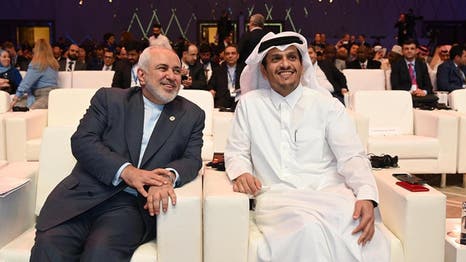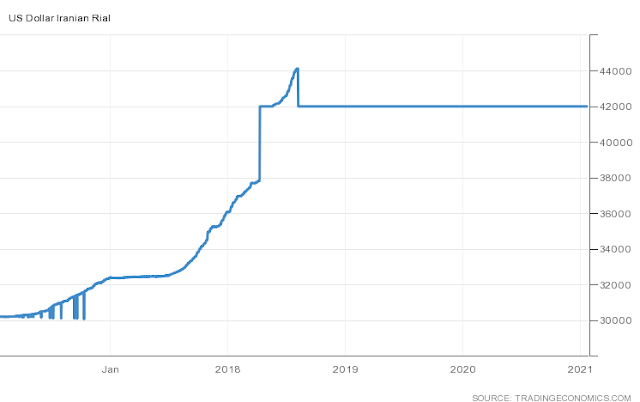With just a day left before Mr Joe Biden taking the reins
of the US administration and a complete policy reversal in the offing, there
are signs that Qatar is attempting to bring Iran, a Shia nation and the rest of
Sunni Arab nations in the Gulf closer in the coming days.
Iran and the Sunni block, apart from Qatar and
Turkey, have been diverging diplomatically and politically for years; at the
core of the dispute, of course, is mainly the religious dogmatism.
The Qatari move comes in the wake of reinstating full
diplomatic ties between Qatar, the gas-rich tiny Gulf nation, and the quartet
consisted of Saudi Arabia, Egypt, Bahrein and the UAE.
It was the last successful diplomatic manoeuvre by
the outgoing Trump administration, preceded by initiating full diplomatic ties
between Israel and the UAE, Bahrain, Morocco and Sudan.
The Foreign Minister of Qatar, Sheikh Mohammed bin Abdulrahman Al Thani, told Bloomberg the desire of Qatar to bring back Iran to the fold.
Qatar is sharing a major oil field with Iran and in
this context, the former knows how important it is to reduce the tension
involving Iran in the region, especially at a time when oil and gas sector is
experiencing plenty of volatility.
Moreover, the US Navy is hyperactive in the Strait
of Hormuz with a fleet of aircraft carriers and destroyers in battle readiness;
in recent days, B-52 bombers have been flying at regular intervals, something
Iran described as ‘intimidation tactics’.
On its part, Iran has been conduction its own military drills in the region in response, citing self-defence in the event of an attack by the US; Iran conducted its fifth military manoureve today.
The last thing that Qatar wants on its doorstep is a
military confrontation with Iran, not least because the former hosts the
largest US military base in the region.
The success of the highly ambitious – and sensitive –
move by Qatar remains to be seen in the coming weeks. By contrast, Saudi Arabia
holds a diametrically opposite view when it comes to the relations with Iran.
The Gulf quartet, led by Saudi Arabia, restored
diplomatic ties with Qatar in order to further isolate Iran on the grounds of
its pursuit of ‘nuclear weapons’ and ballistic missile programme.
Neither Saudi Arabia nor the UAE so far warmed to
the idea floated by Qatar. Saudi Arabia, meanwhile, is under the threats of
missiles fired by Houthi rebels, backed by Iran; in this context, any form of reconciliation
is in the hypothetical realm at present, even if Qatar is on this mission in
good faith.
Even if the relations between Qatar and Saudi Arabia
will not be elevated to be normal, the possibility of easing sanctions against
Iran has never been higher after four years of Trump administration.
If Iran insists on compensating for its loss of
income, the process may drag on for months, though.
During his presidential campaign in 2016, Mr Donald
Trump tried to rip off President Obama’s legacy by focussing heavily on the
compensation paid to Iran in cash on the same issue,
amounted to billions of dollars by plane loads; it did the trick politically,
then.
Iran has not expressed its position in public,
although it wants sanctions to be eased as soon as possible, as the former is in
dire need of dollars to buy essential items.
Even if Qatar achieves limited success with easing
tension with Iran and the Sunni Arabs, Iran will never agree with a steep cut
in its oil production, as Saudis want.
Having been battered for years due to US-led
sanctions, it needs to revitalize its economy and shore up many sectors,
especially the banking.
In short, as far as oil sector is concerned, the
markets will see the supply of oil without unnecessary hindrances in the coming
months - the exact thing that the US shale
oil producers think they can achieve shortly.








